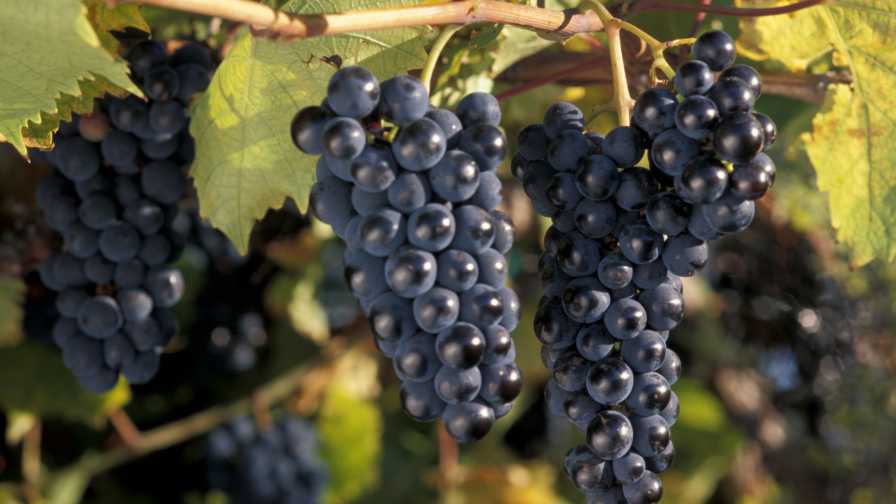Industry Experts Sound Off On Climate Change
Climate change has been a polarizing issue in our society, but over the past few decades the tide has turned, and today polls show most Americans now believe the climate is in fact changing, and it is man made.
Many in agriculture have not been as quick to believe in climate change, and we at American Fruit Grower® and Western Fruit Grower™ magazines began contemplating what growers, association leaders, Extension advisors, and economists thought about the issue.
So we conducted an informal poll. First, we asked if they believe the climate is changing, and we asked them to elaborate on their reasoning. Second, we asked that if they believe change is afoot:
■ Will fruit, grape, and nut production be appreciably different 20 years from now? If so, how?
■ Will climate change be a factor in breeding programs in the future? Should it?
■ What types of production techniques will growers need to adopt to be better prepared for weather extremes in the future?
■ Many of the proactive steps for dealing with a changing climate — relocating, converting to protected production, changing crop mixes — could be capital intensive. What suggestions would you have for smaller growers who may not have the resources to invest in some of these other solutions?
■ If you could give a grower one single piece of advice when it comes to climate change, what would it be?
Here’s a look at some of their responses.
 Desmond O’Rourke, Publisher, World Apple Report, Pullman, WA
Desmond O’Rourke, Publisher, World Apple Report, Pullman, WA
The evidence continues to mount that climate is changing and that human activities are contributing to that change. However, one has to be skeptical about the accuracy of the giant models that have been used in describing and forecasting change. The underlying assumptions have a major effect on model results. And, reliable data is a huge problem. That also implies that policy proposals based on those models have to be approached with skepticism.
That said, my observations and contacts in the fruit industry around the world indicate that producers are seeing major changes in growing conditions. Bloom dates in Central Europe are now a month earlier than they were in the 1950s. The incidence of hail has become more frequent. Maximum temperatures in the British Isles are 10 degrees higher than they were 50 years ago. Growers in Southern Hemisphere countries like Australia, South Africa, and Chile have been worried about holes in the ozone layer for two decades and have also been reporting much higher temperatures.
The risks and costs associated with climate change will put additional pressure on smaller producers to exit the fruit business. The one single piece of advice I would give to an individual producer is to keep intensive records on each orchard site and make adaptations based on what the records are telling you about that specific site. Generalizations about climate change are not a sound basis for good decisions.
 Joe C. Zanger, Grower, Casa de Fruta, Hollister, CA
Joe C. Zanger, Grower, Casa de Fruta, Hollister, CA
I err on the side of being skeptical to both climate change, and if there is, that it is being human-activity caused.
Those pushing these beliefs I liken to the creators of the 2014 movie Interstellar. Matthew McConaughey and Anne Hathaway have to find a new planet for us because the corn and wheat crops get a virus that causes the crops to die and consumes all the earth’s oxygen, or so the plot goes. Those wanting to wean us from carbon-based fuels, including Hollywood and coastal urbanites, often let ideology be their science.
It’s easy for wealthy folks to adjust their ways without really having to sacrifice. I’m pro-conservation and living within nature’s means but I’m not buying that San Francisco will be underwater as the North Pole melts. So my view is that it’s a cyclical phenomenon.
As a grower, the only warming issue I have noticed is that we have not gotten the required dormant chilling hours for the deciduous trees (cherries primarily) that we are accustomed to. Just 20 years ago we could expect at least 800 and as many as 1,400 hours. The last several years we have been in the 300 to 600 range which is not enough.
Is it cyclical or a warmer and getting warmer climate? Three- and four-year droughts certainly have come and gone over the years. Can we expect droughts more often and less snowpack more often? I do not think the science can definitively say one way or the other. But that’s far outside my range of expertise. I can say that I would not advise planting cherries in Santa Clara/San Benito County any longer because of several reasons, chilling hours just being one.
 Mario R. Miranda Sazo, Farm Advisor, Cornell University Cooperative Extension, Newark, NY
Mario R. Miranda Sazo, Farm Advisor, Cornell University Cooperative Extension, Newark, NY
There are several growers who are still non-believers in climate change. Future adaptation to climate change or to severe weather events “changes” will be needed. Some work needs to be done in educating the U.S. fruit growing community about climate change, because many don’t believe it.
In my opinion, U.S. fruit growers don’t seem to be as concerned about extreme weather events — perhaps because they have to deal with them regularly. Part of the core of fruit growing is that there are lots of things to worry about, and growers are used to adapting. Since extremes are not common, it takes a longer time to really document changes in frequency.
One extreme was the spring of 2012 when it was so warm in March that some apple varieties actually bloomed five weeks ahead of normal. Unfortunately, those apples were severely harmed by normal cold temperatures in April.
Another unexpected event was the recent “May 23 frost” that occurred in the Western New York Lake Ontario Fruit Region. Freezing temperatures were recorded at 13 Network for Environmental Weather stations ranging from 25.9˚F to 32˚F. The most affected blocks had 50%-60% of fruitlets damaged. Some fruitlets showed damage on the outside of the fruits with ribbing and, in the most severe cases, blackened skin. Several growers were surprised to suffer this late frost event this year.
I believe that the warming winters are predicted to lead to more warm springs or unexpected spring events such as late frosts, severe hail, wind storms, and a lot more rain in short periods of time.
The same phenomena that we experienced in New York orchards also occurred in South Tyrolean orchards in 2012. In general, these “changes” are occurring at a faster rate for the European fruit community than here in America.
 Jon Clements, University of Massachusetts Extension Educator, Belchertown, MA
Jon Clements, University of Massachusetts Extension Educator, Belchertown, MA
To deny we are contributing to global warming is just silly — didn’t we learn about the greenhouse effect in grade school science? Burning fossil fuels makes carbon dioxide which makes the atmosphere trap the sun’s energy as heat. Pure fact.
That being said, I think fruit growers have always had to deal with weather extremes (and are good at it!) and that will not change much. It’s going to mean having crop insurance will be more important. Or being self-insured with a cash surplus.
It’s going to mean having water will be more important. Water use is going to be more and more restricted by government (by the people and for the people). And with good reason, water resources (and the other living things that depend on it, like fish!) are being hammered by man’s activities. And we all need water (as well as food) to survive.
I expect animal agriculture to be more impacted by global warming than horticultural crops. Be glad we’re not raising animals, as I suspect apples (and all vegetables) will become a more desirable food in popular culture than animal protein as global warming hits home.
Closer to home, we here in Massachusetts are in a “sweet spot” for growing apples. We can grow and mature almost any popular apple variety so it will be a long time before global warming takes that distinction away from us. But agriculture, along with the rest of our industrial and leisure activities, has a huge impact on our environment, and we all need to pay attention to that and not live in a “bubble.”
 Barry J. Bedwell, President, California Fresh Fruit Association, Fresno, CA
Barry J. Bedwell, President, California Fresh Fruit Association, Fresno, CA
When it comes to climate change, here first are some basic details relating to our association and membership:
1) CFFA has not taken any official position to recognize or dispute climate change;
2) the percentage of our membership that believes there is manmade climate change seems to be growing although I could not say with any accuracy what actual percentage that may be;
3) the current drought has had a material impact on the amount of discussion related to climate change; and
4) the majority of our members believe that even the potential for climate change and the resulting acceleration of snow runoff should be adequate reasoning for decision makers to support the construction of more above ground storage facilities, aka dams.
The primary issues related to climate change and its impact on the production of fresh fruit permanent crops such as table grapes and stone fruit center on chill hours, changing maturity dates (earlier) and most potentially impactful, the availability of water.
When it comes to the first two issues of chill hours and changing maturity dates, I see these as being more long term in recognizing differences that vary from current observations. By that I mean that a general trend of less chilling hours or earlier picking dates due to climate change, mixed in with normal season-to-season variances, will most likely not result in any major production decreases in a decade or even two.
However, given a longer time frame of say 50 years, climate variation will require updated and adaptable farming techniques as well as newer varieties to address the change. Therefore I would expect that nurseries that conduct breeding programs with a clear understanding of this trend will be best positioned for the long term future.
Farmers likewise will have to be cognizant on ways to maximize production and quality in the face of increased variables. To simply repeat timing of cultural practices of the past could result in the loss of competiveness. Better science and knowledge related to dormancy and its impact on production will be important.
In addition, with water availability decreasing and the likelihood of changes to the current water rights system, growers will have to be as efficient as possible.
All of these challenges will make it more difficult for the small operator to compete and further consolidation is likely. I would recommend to growers in regard to the issue of climate change to always keep an open mind and look for opportunities to advance issues such as the need for greater water storage. In that regard, climate change should bring more people together for the common good and result in real progress rather than just political debate and rhetoric. ●









